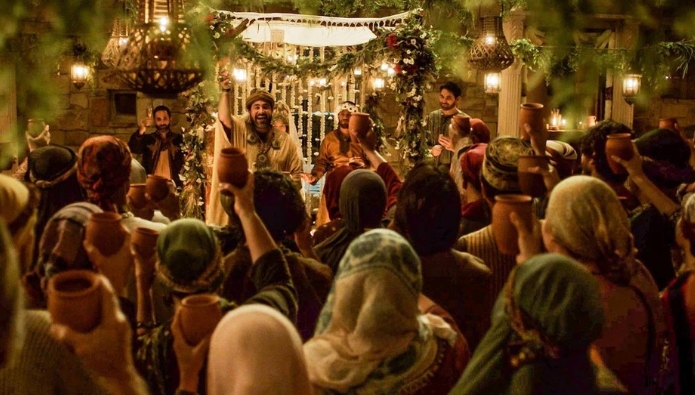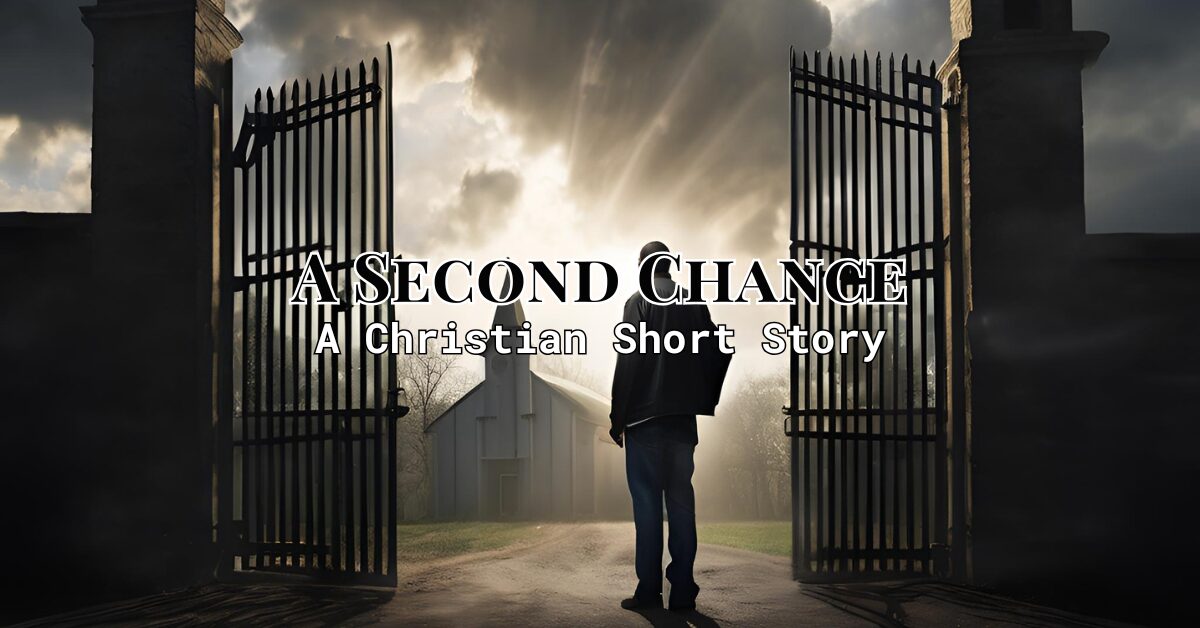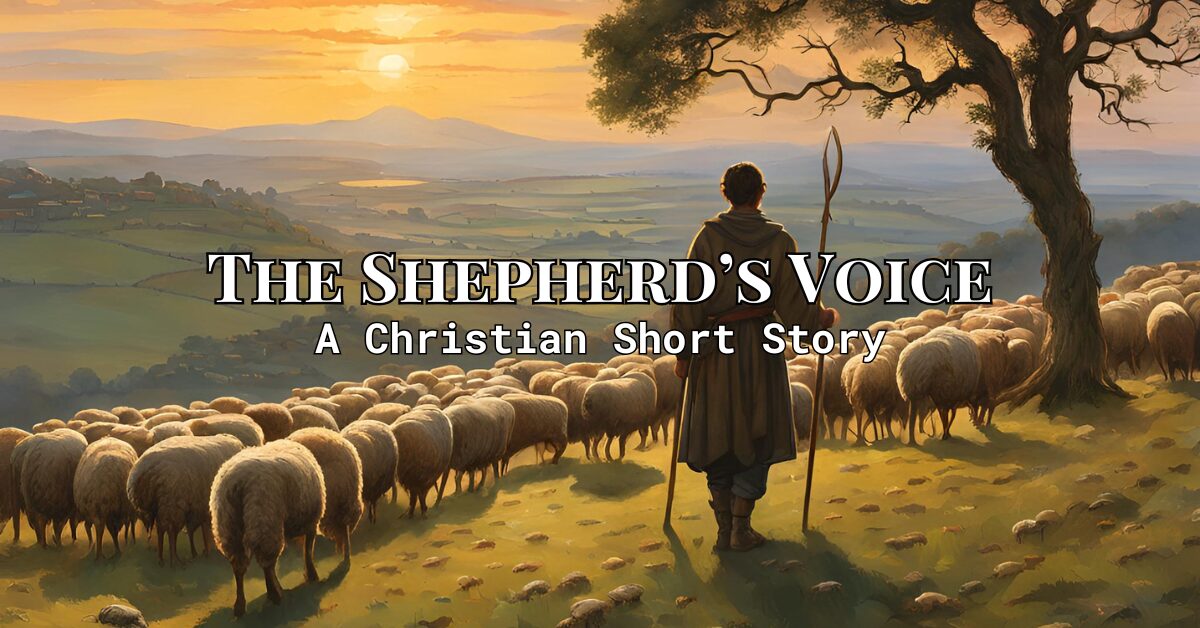In the profound collection of Jesus’ teachings, the Parable of the Wedding Banquet stands out as a striking allegory, rich with layers of meaning about inclusion, rejection, and the nature of God’s kingdom. Found in Matthew 22:2-14, this narrative unfolds with a king who prepares a lavish banquet to celebrate his son’s wedding, extending invitations to those expected to be honored guests. However, as the story progresses, the initial invitees spurn their invitations, leading the king to extend his invitation to others, filling the banquet hall with an unexpected assortment of guests.
The Wedding Banquet parable delves deep into themes of divine invitation and the responsiveness of the human heart. It challenges the listener to reflect on the nature of God’s call — a call that is both generous and demanding. The parable contrasts the rejection of the invitation by those who were first invited with the acceptance by those who were gathered from the streets, illustrating the Kingdom of Heaven’s open and inclusive invitation to all, yet also highlighting the grave consequences of indifference and rejection.
This parable is not merely an ancient story but resonates with timeless relevance, prompting us to examine our own responses to God’s invitation. Are we like the initial guests, too caught up in our own pursuits to heed the call? Or are we ready and willing to accept the invitation, recognizing the honor of participating in the divine celebration?
As we explore The Wedding Banquet, we are invited to ponder its implications for our lives, our communities, and our spiritual journey. This exploration will reveal the richness of God’s grace, the breadth of His invitation, and the depth of commitment sought from each of us in response. Join us as we delve into the profound lessons of The Wedding Banquet, seeking to understand and embody the truths it imparts about living in the light of God’s kingdom.
Also Read: Parable of Jesus: The Tenants
Parable of Jesus Christ: The Wedding Banquet
The Wedding Banquet Parable, Matthew chapter 22, verses 2-14 (WEB):
“2 “The Kingdom of Heaven is like a certain king, who made a marriage feast for his son, 3 and sent out his servants to call those who were invited to the marriage feast, but they would not come. 4 Again he sent out other servants, saying, ‘Tell those who are invited, “Behold, I have made ready my dinner. My cattle and my fatlings are killed, and all things are ready. Come to the marriage feast!”’
5 But they made light of it, and went their ways, one to his own farm, another to his merchandise, 6 and the rest grabbed his servants, treated them shamefully, and killed them. 7 When the king heard that, he was angry, and sent his armies, destroyed those murderers, and burned their city.
8 “Then he said to his servants, ‘The wedding is ready, but those who were invited weren’t worthy. 9 Go therefore to the intersections of the highways, and as many as you may find, invite to the marriage feast.’ 10 Those servants went out into the highways and gathered together as many as they found, both bad and good. The wedding was filled with guests. 11 But when the king came in to see the guests, he saw there a man who didn’t have on wedding clothing, 12 and he said to him, ‘Friend, how did you come in here not wearing wedding clothing?’ He was speechless.
13 Then the king said to the servants, ‘Bind him hand and foot, take him away, and throw him into the outer darkness; there is where the weeping and grinding of teeth will be.’ 14 For many are called, but few chosen.””
This parable, rich with symbolism, speaks to the openness of the invitation to God’s kingdom and the importance of being properly prepared to accept it.
Also Read: The 45 Parables of Jesus
Interpretation of The Wedding Banquet Parable

The Wedding Banquet Parable, presented in Matthew 22:2-14, serves as a profound allegory for the Kingdom of Heaven, emphasizing themes of invitation, rejection, and the dire consequences of spurning the call of God. This narrative encapsulates the expansive and inclusive nature of God’s invitation to humanity, juxtaposed with a sobering reminder of the expectations tied to accepting this divine summons. Let’s dive into the multifaceted interpretation of The Wedding Banquet Parable.
The Universal Invitation
Inclusivity of God’s Call: The king’s decision to invite everyone to the wedding, “both bad and good,” symbolizes the universal nature of God’s invitation to His kingdom. The Wedding Banquet Parable illustrates that no one is beyond the reach of God’s grace, emphasizing the gospel’s availability to all, irrespective of their societal status or past transgressions.
Rejection by the Invited: The initial invitees’ refusal to attend the banquet reflects the rejection of Jesus and His message by the very people who awaited the Messiah—primarily the religious leaders of Israel. This aspect of The Wedding Banquet Parable serves as a critique of those who, despite their privileged knowledge of the scriptures and the prophets, fail to recognize and accept God’s ultimate revelation in Christ.
The Consequences of Rejection
Judgment on the Indifferent: The harsh response of the king to those who ignored or mistreated his servants underscores the seriousness with which God views the rejection of His invitation. The destruction of the murderers and their city can be seen as an allegorical representation of the destruction of Jerusalem in A.D. 70, symbolizing the judgment that falls on those who spurn God’s call.
The Expectation of Righteousness
Requirement of Wedding Clothes: The guest without wedding clothes, who is cast out into the darkness, highlights the necessity of being properly “clothed” for the kingdom. This element of The Wedding Banquet Parable symbolizes the righteousness required to enter God’s presence—a righteousness not our own, but imparted to us through faith in Christ. It serves as a reminder that mere attendance is not enough; one must also be transformed and made right through Christ.
Implications for Believers
Many Are Called, Few Are Chosen: This concluding statement of the parable emphasizes the selective nature of entering God’s kingdom. It suggests that while the invitation is extended widely, only those who respond appropriately—by accepting Jesus as Lord and living in accordance with His teachings—will partake in the feast. This challenges believers to examine their lives, ensuring their faith is genuine and their actions reflect their commitment to God.
The Wedding Banquet Parable is a rich and complex teaching that invites us to reflect on our response to God’s gracious invitation to His kingdom. It urges us to consider not just our acceptance of the call but also our preparedness and the authenticity of our commitment. Through this parable, Jesus encourages us to embrace the inclusive nature of God’s call, to heed the warnings against indifference and rejection, and to clothe ourselves in the righteousness that comes from faith in Him. In doing so, we ensure our place at the eternal banquet prepared for those who love and follow Him.
Also read: Parable of Jesus: The Tenants
Practical Application of The Wedding Banquet Parable in Our Daily Lives

How can you apply The Wedding Banquet Parable in practically in your daily life? Let’s find out.
The Wedding Banquet Parable is not just a story of ancient times but a narrative rich with lessons that resonate deeply with our contemporary lives. Through its vivid depiction of a king’s invitation to a feast, rejection by the invited, and the eventual inclusion of the unexpected, this parable offers profound insights into how we can live out the kingdom principles in our daily lives. Here’s how we can apply the timeless wisdom of The Wedding Banquet Parable today.
Embracing God's Invitation
Openness to Divine Call: The initial refusal by the invited guests to attend the banquet serves as a cautionary tale about being open to God’s call. In our lives, this might translate to being receptive to opportunities for spiritual growth, service, and participation in community life. The Wedding Banquet Parable encourages us to accept God’s invitation with eagerness, recognizing it as a privilege to partake in His kingdom work.
Prioritizing Spiritual Commitments: Often, we get caught up in the busyness of daily life, much like the invitees who had their farms and businesses to attend to. The practical takeaway here is the importance of prioritizing our spiritual commitments—ensuring that our relationship with God and our duties as members of His kingdom do not take a backseat to worldly concerns.
Inclusivity and Hospitality
Welcoming All: The king’s command to invite everyone to the feast, “both bad and good,” underscores the inclusivity of God’s kingdom. We can embody this principle by extending hospitality and welcome to all, especially within our communities and churches. Practicing inclusivity means breaking down barriers of judgment and opening our hearts and doors to those who may feel unwelcome or marginalized.
Serving the Underserved: Inspired by The Wedding Banquet Parable, we are called to look beyond our immediate circles and reach out to those in need—be it through acts of kindness, volunteering, or advocacy. The parable challenges us to serve not for recognition but out of genuine love and obedience to God’s call to love our neighbors.
Preparedness and Righteousness
Living Prepared: The guest thrown out for lack of wedding clothes symbolizes the need for preparedness—being clothed in righteousness through faith in Christ. Practically, this means living each day in a manner that reflects our readiness for God’s kingdom, cultivating a life of prayer, moral integrity, and spiritual discipline.
Reflecting Christ in Our Actions: The righteousness required at the wedding banquet is not our own but that which is imparted to us through Christ. In our daily lives, this translates to allowing Jesus’ teachings to shape our actions and decisions, striving to reflect His love, grace, and truth in everything we do.
Responding to Rejection with Grace
Dealing with Rejection: The parable also touches on dealing with rejection, as seen in the king’s reaction to the invited guests who refused to come. In our interactions, when faced with rejection or opposition, especially in matters of faith, we are encouraged to respond with grace, patience, and perseverance, trusting in God’s ultimate justice and plan.
The Wedding Banquet Parable offers a blueprint for living a life that is receptive to God’s call, marked by inclusivity and hospitality, preparedness for the kingdom, and a righteousness that reflects our relationship with Christ. By integrating the lessons of this parable into our daily lives, we can navigate the complexities of modern existence with a heart aligned to God’s purposes, ready to partake in the eternal feast He has prepared for those who love Him.
Comparing The Wedding Banquet and The Great Banquet Parables

The Parable of the Wedding Banquet (Matthew 22:2-14) and the Parable of the Great Banquet (Luke 14:15-24) share thematic similarities, focusing on the themes of invitation, rejection, and the expansive nature of God’s kingdom. Despite their similar motifs, each parable uniquely contributes to the broader narrative of inclusivity, grace, and divine invitation in the Gospels. Let’s explore the nuances and distinctions between these two compelling parables.
Context and Setting
The Wedding Banquet: Situated within Matthew’s Gospel, The Wedding Banquet is part of Jesus’ teachings in Jerusalem, shortly before His passion. The parable is directed at the Jewish religious leaders, emphasizing the kingdom of heaven’s openness and the consequences of rejecting Jesus, the Messiah.
The Great Banquet: Luke places this parable in a setting where Jesus dines at the house of a Pharisee, using the occasion to teach about humility and the kingdom of God. This parable is also a critique of the Jewish leaders’ rejection but emphasizes the inclusion of the Gentiles and marginalized into God’s kingdom.
Themes of Invitation and Rejection
Invitation Extended to All: Both parables start with a generous invitation to a feast, symbolizing God’s call to the kingdom. The Wedding Banquet specifically highlights the king’s son’s wedding, underscoring the messianic feast and the inauguration of the new covenant through Jesus.
Rejection by the Initial Invitees: In both stories, the initially invited guests find excuses to decline the invitation. This rejection symbolizes Israel’s leaders and their refusal to accept Jesus as the Messiah. The parables use this rejection to illustrate the grave mistake of ignoring God’s gracious invitation.
Response to Rejection
Inclusion of the Unexpected: Following the rejection, both parables depict the host extending the invitation to an unlikely group of people. In The Wedding Banquet, the servants are told to invite anyone they find, highlighting the kingdom’s openness. The Great Banquet similarly illustrates the host commanding his servant to bring in “the poor, the crippled, the blind, and the lame,” emphasizing God’s grace towards those deemed unworthy by societal standards.
Judgment and Consequences: Each parable concludes with a note of judgment on those who reject the invitation. The Wedding Banquet ends with a guest being expelled for not wearing wedding clothes, symbolizing the need for righteousness through Christ. The Great Banquet, while not focusing on individual judgment, underscores the missed opportunity and loss faced by those who refuse the call.
Lessons and Applications
The Wedding Banquet: This parable calls attention to the readiness and appropriateness required for participating in God’s kingdom. It warns of the dangers of taking one’s invitation for granted and the critical need for personal transformation.
The Great Banquet: Luke’s parable focuses more on the inclusivity of God’s invitation, challenging social and religious barriers that exclude people from experiencing God’s grace. It serves as a reminder that God’s kingdom defies human expectations, welcoming all who respond in faith.
While The Wedding Banquet and The Great Banquet parables share a core message about the divine invitation to the kingdom of God and the tragic consequences of its rejection, they each offer unique perspectives on readiness, righteousness, and inclusivity. Together, these parables enrich our understanding of God’s gracious invitation to all humanity, challenging us to respond with faith, humility, and a willingness to embrace the transformative power of God’s grace in our lives.
Related: Parable of Jesus: The Great Banquet
Conclusion

In conclusion, the Parable of the Wedding Banquet is a compelling narrative that intricately weaves together themes of invitation, rejection, and divine grace, offering a profound reflection on the nature of God’s kingdom. This parable challenges us to contemplate our response to the divine invitation, urging us to consider not just our initial acceptance but our continued readiness and the authenticity of our commitment to the values of the kingdom.
The Wedding Banquet parable serves as a vivid reminder that the call to participate in the joyous celebration of God’s kingdom is extended to all, yet it comes with expectations—of righteousness, transformation, and preparedness. It underscores the tragic folly of indifference and the joyous embrace of those who respond with eagerness and humility. Through its narrative, we are invited to examine our own spiritual garments, ensuring that we are clothed in the righteousness that comes through faith in Christ, ready to partake in the ultimate feast.
As we reflect on the lessons of the Wedding Banquet, let us strive to live in a manner worthy of our calling, embracing the grace offered to us and extending that invitation to others with generosity and love. Let this parable inspire us to walk in faithfulness, to cultivate a heart of readiness, and to joyfully anticipate the day when we will join the grand celebration in the kingdom of Heaven.
The Parable of the Wedding Banquet is not just a story from the past; it’s a living invitation to each of us today. May we respond with hearts open to God’s call, prepared to enter the feast, and committed to living out the kingdom values in our daily lives.
Read the Next: Parable of Jesus: The Fig Tree








